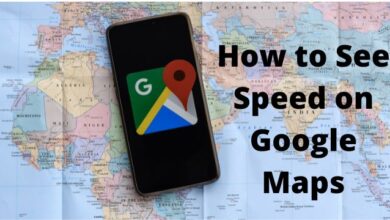Proxy vs VPN: What Works Better

Proxy vs VPN: Although proxy servers and VPNs share certain similarities, they also differ significantly. You should probably change your IP address if you’re reading this, but you might also wish to encrypt all of your web activities. Which one, a VPN or a proxy server, should you use? We’ll assist you in making an informed choice that won’t take too long because each has benefits and drawbacks of its own.
What is VPN?
The connection between the user and the server is safe thanks to a VPN (a virtual private network). Since it is encrypted, no one outside of this network may access it.
You remain anonymous thanks to VPN technology. Behind a different IP address, you are securely disguised in encrypted data. The use of a VPN encrypts all of your online activity. you send and receive everything. One of the many VPN routers is visible if you only log in using a VPN.
With this service, neither your Internet service provider nor hackers or governmental organizations will be able to learn who you are or what you do online.
What is Proxy Server?
The networking technology known as a proxy operates slightly differently. It functions as your proxy or as an intermediate. It delivers your request to its server, where it is processed and sent in the appropriate direction. The information that is gathered also returns in the same manner.
Proxy connections are most frequently used in the corporate sector. Such advantages, such as the following, are significant to him:
- Access control, traffic accounting, filtering, secure information sharing, and interoperability with all operating systems and browsers.
By the tasks they carry out, proxies are split into:
- Many individuals choose to utilize SOCKS5 for activities like file sharing, streaming videos, and online gaming, however, it is significantly slower than HTTP, which is discussed next.
- HTTP: HTTP is a proxy server that is frequently used to access geo-restricted websites. HTTP is a fantastic choice if you are in a nation with a lot of internet censorship.
- Transparent: Not only are proxy servers used to open up particular websites. They can also be employed in the reverse direction. Do you know how those computers at your local public library don’t allow you to use Facebook? That’s because those annoying librarians might have employed a transparent proxy server, which prevents access to specific websites. These servers are frequently used by employers and colleges alike.
Proxy vs VPN
| Features | Proxy | VPN |
| Number of uses | 1 | Unlimited |
| Cost | Usually free | Usually paid |
| Sells user data | Yes | No |
| Encrypt IP address | Yes | Yes |
| Encrypt web activity | No | Yes |
| Can be used to bypass geo-restrictions | Yes | Yes |
| Compatible with streaming and gaming | Yes | Yes |
| Slows down browsing speeds | Yes | Yes |
| Coverage | 1 website or app | All websites and apps |
Key Differences: Proxy vs VPN
Let’s first discuss the key distinctions between
- Paid vs. free
- Encryption
- Coverage
- Selling data
Paid vs. free
The bulk of the free VPN providers have restrictions on how much data you may use daily, how many servers you can move to, and other things. While most proxy servers are free, it makes sense for most users to spend money on a subscription service.
Encryption
Encryption is the primary distinction between a VPN proxy and a VPN. VPNs use encryption to cover up all of your online activities, including the websites you visit, in addition to hiding your private IP address. On the other hand, proxy servers won’t encrypt your online actions; they will merely modify your IP address.
Coverage
Proxy servers can only conceal one website or app at a time, whereas VPNs encrypt all of a user’s web activity, regardless of the website or app.
Selling data
The majority of proxy servers are free, and to make up for this, many will sell user information to marketers. Contrarily, the majority of paid VPNs do not record or share information about user traffic.
Key Similarities
Here is the conclusion we reached after looking for common ground.
- Bypass geo-restrictions
- Streaming and gaming-compatible
- Slow down browsing speeds
- Hide IP addresses
Bypass geo-restrictions
A VPN and a proxy server can both be used to circumvent internet censorship imposed by a government.
Streaming and gaming-compatible
Both are compatible with game consoles and streaming services, albeit you must use a SOCKS5 proxy for proxies.
Slow down browsing speeds
Both techniques may at least slightly slow down your surfing performance, however, we’ll confess that proxy connections are frequently slower than VPN connections.
Hide IP addresses
Your device’s IP address will be concealed by both VPNs and proxy servers.
What Works Better? How to Choose
Pros and Cons of VPN
| Pros | Cons |
| All websites and apps are covered: A VPN is the simplest choice if you want more than one website or app covered. | If you only require it for one time: If so, using a proxy server will probably be simpler and less expensive. |
| Web traffic encryption: It’s also the only choice if you want all of the websites you visit, not just the IP address of your device, to be encrypted. | Paying could be necessary: While some VPNs are fully free or provide free trials, in general, VPNs are more expensive than proxies. |
| Lack of traffic logging Proxy servers do record your traffic, but the majority of VPNs don’t. | ———————————————— |
| Improved speeds Although they vary widely from VPN to VPN in terms of performance, VPNs are generally quicker than proxy servers. | ———————————————— |
Pros and Cons of Proxy Server
| Pros | Cons |
| IP addresses for only one website or app should be concealed: Obtaining a proxy server to protect just one website or app will be simpler than using a VPN if you require a one-and-one. | Does not encrypt web traffic: Although your IP address won’t be visible, your Internet Service Provider will still be able to observe everything you do online. |
| Never requiring payment: No money, no issue! | Web traffic is logged and sold: Proxy servers not only record your online behavior, but they also may sell it to outside advertisers. |
| ———————————————— | Only functions on one specific website or application: The majority of users will desire security for all of their web activity. |
| ———————————————— | ———————————————— |
Is a VPN better than a proxy?
A VPN is superior because it encrypts your traffic and routes it through a secure VPN server, giving you privacy and protection. A proxy does nothing more than route your traffic through a mediating server; it does not always provide additional security. Furthermore, VPNs safeguard all of your traffic at the operating system level, unlike proxies. VPN prevails in the proxy vs. VPN comparison.
Do you need a proxy if you have a VPN?
No. Proxy functions are duplicated and expanded upon by premium VPN providers. For a quick IP change, you might use a proxy extension, but be aware that not all proxies are secure and some of them might collect your data.
Can I use VPN and proxy together?
It is possible to use proxies and VPNs together, although configuring this can be difficult. Additionally, we advise against it because using a proxy server would only add another middleman, slowing down your internet connection with no discernible advantages. When utilizing them, it is preferable to alternate between the two.
- How to Download Google One VPN on Windows And Mac
- 16 Cool Uses of VPN(Virtual Private Network)
- How to fix Nordvpn not connecting Error
Conclusion
Because they both reroute your data through a distant server and conceal your IP address, a VPN and a proxy are comparable. A VPN, however, has numerous advantages over a proxy server. You should, without a doubt, select a VPN if you are concerned about your privacy and security.







